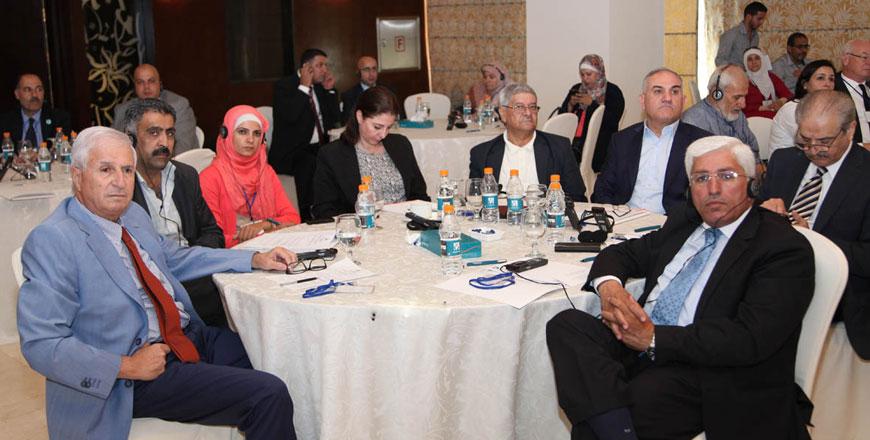You are here
Study recommends JD15,000 annually to support political parties
By Bahaa Al Deen Al Nawas - Jul 16,2019 - Last updated at Jul 16,2019

A woman casts her vote during Parliamentary elections on January 23, 2013, in Amman (JT file photo)
AMMAN — Political parties in Jordan need financial support that should be based on clear criteria and measurements of success, according to a study published by the Friedrich Ebert Stiftung.
A copy of the study, carried out by lawyers Muath Momani and Saddam Abu Azzam, was sent to The Jordan Times and offers recommendations that can be integrated into the by-law to better organise the funding process for political parties.
The aim of the study is to help politicians and decision makers find a unified system or model for financially supporting political parties.
These standards include waiting a year after a political party is established to publish the announcement in the Official Gazette, ensuring the party has at least 500 members and that it comprises at least 15 per cent women and 15 per cent members under the age of 30.
In regards to operational costs, the study suggests that the government provide JD15,000 annually to support the operational costs of a political party after ensuring it meets certain conditions. The money would fund operations at political headquarters and branches, utility costs, office furnishing, salaries for the people who work for the party, paper and digital publications and annual conference costs.
The study also suggested allocating a pre-decided sum for each vote a candidate of a party receives during the election, under the condition that the candidate receives at least 2 per cent of the total votes in their respective area.
These recommendations and others were part of a “first option” of recommendations made in the study, which aim to lay the framework for designing standards to finance parties.
However, a “second option” is based on rewarding the achievements of political parties, especially if they show they can garner trust among the public based on the number of votes they receive.
The second option suggests allocating a set amount for each vote a candidate receives, which would be based on the number of votes a candidate receives at the local polling station where their candidacy was announced, under the condition that they receive 3 per cent of the total votes across their district.
Another sum would be allocated equal to the number of votes an entire party gets nationally; under the condition the party receives at least 1 per cent of the total votes in the country. An extra sum would be given for each seat won by a female candidate, as well as for each seat won by a young person under the age of 35.
Commenting on the study and its recommendations, Professor of Political Sciences at Hashemite University Jamal Al Shalabi told The Jordan Times over the phone on Tuesday that political parties indeed face financial problems and require support; however, not all parties are equally worthy of financial support from the government.
"Political parties need to reach at least 5 per cent of total votes to be eligible for government support like in France for example," Al Shalabi said, noting that financial support can be obtained from the party's supporters, the members themselves and the government.
Therefore, Al Shalabi agreed with the study's recommendations for clear criteria to measure a party's success and the amount of support it deserves.
Thus, the higher the percentage of votes parties gain, the more support they should be given, which makes it easier to distinguish political parties that actually work hard from those that only want to receive money from the country without having to work for it.
He concluded by saying that as important as financial support is, a party’s values and ideology are what enable it to succeed.
Related Articles
AMMAN — A group of 22 political parties on Wednesday issued a joint statement voicing their rejection of a recent government draft by-law on
Organising state financing for political parties based on clearly defined parameters will facilitate their development and growth, according to a recently released study.
AMMAN — While the government believes that political parties will gain power and influence by forming coalitions prior to the September 20 p












